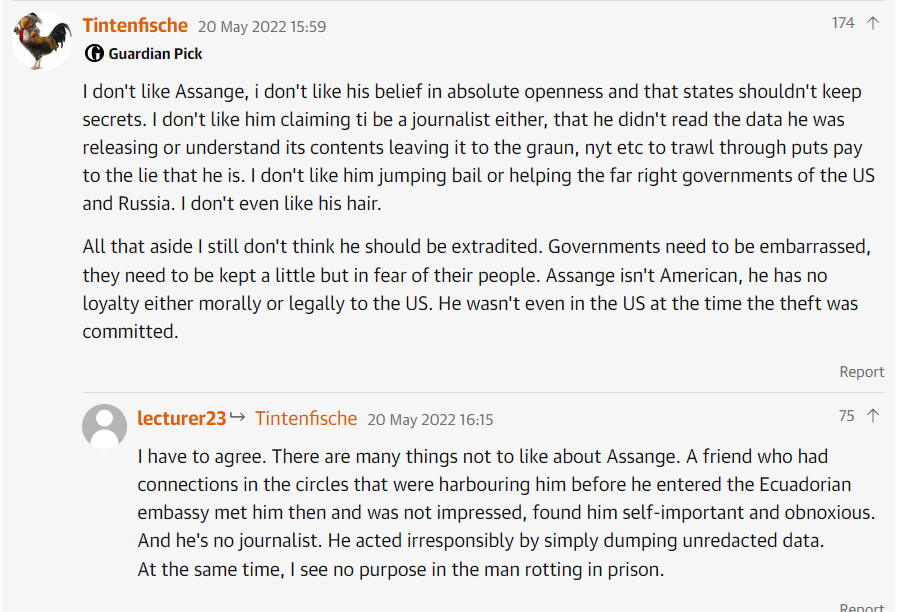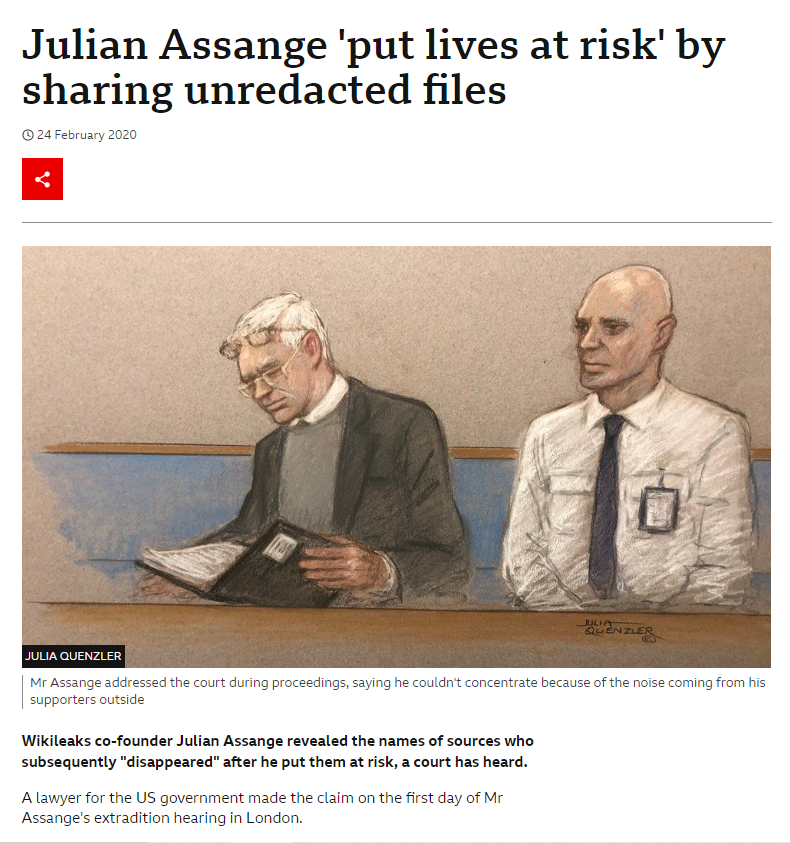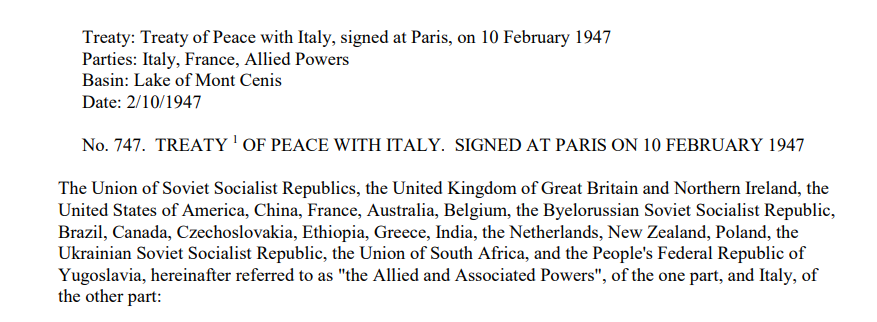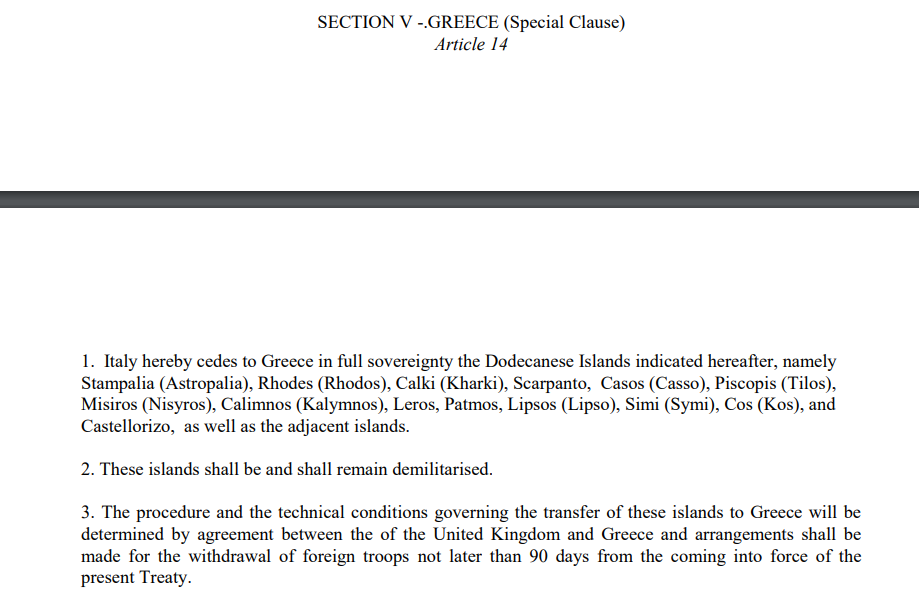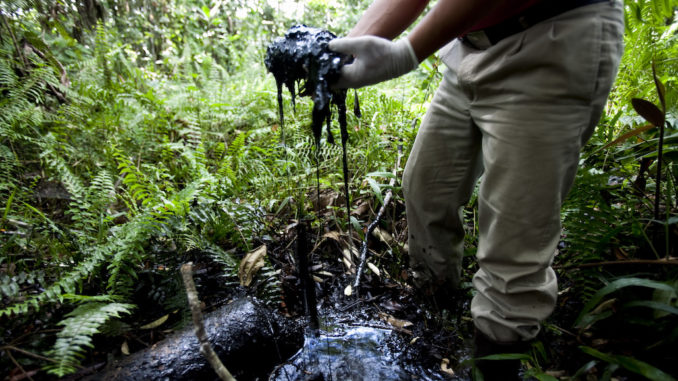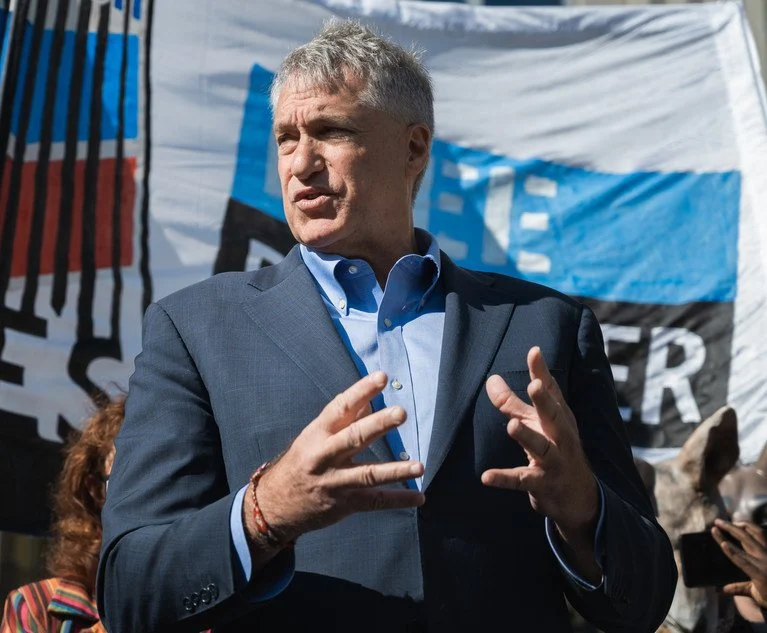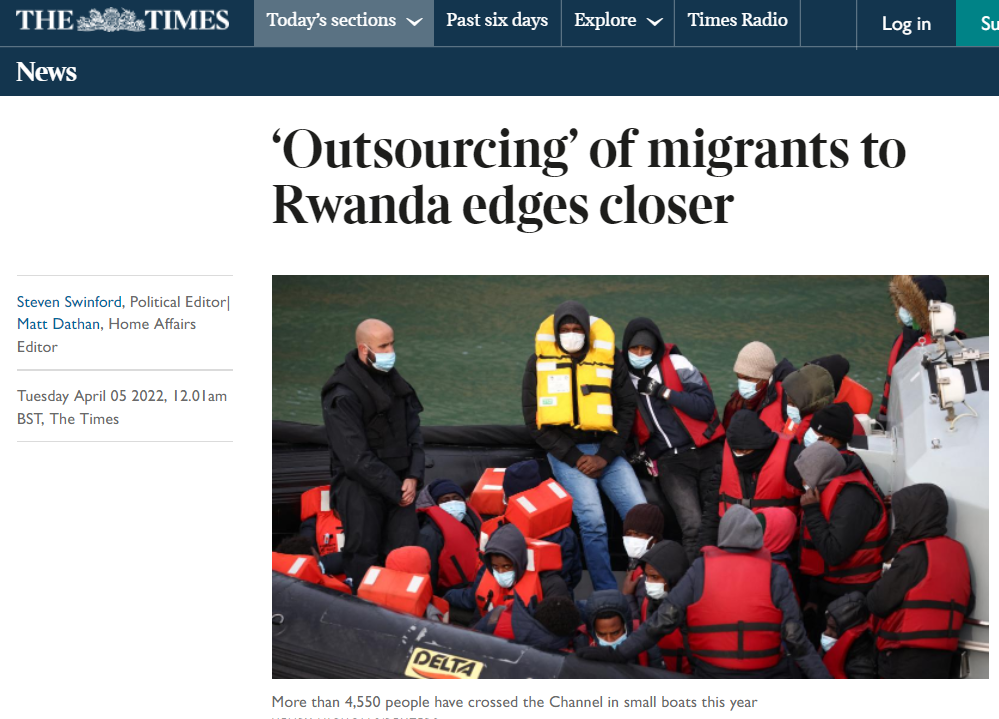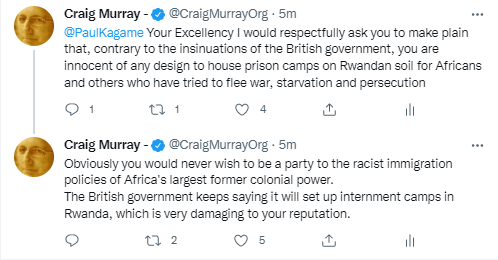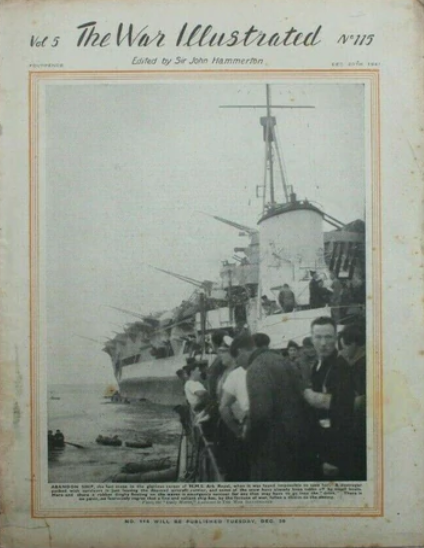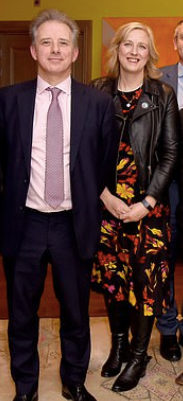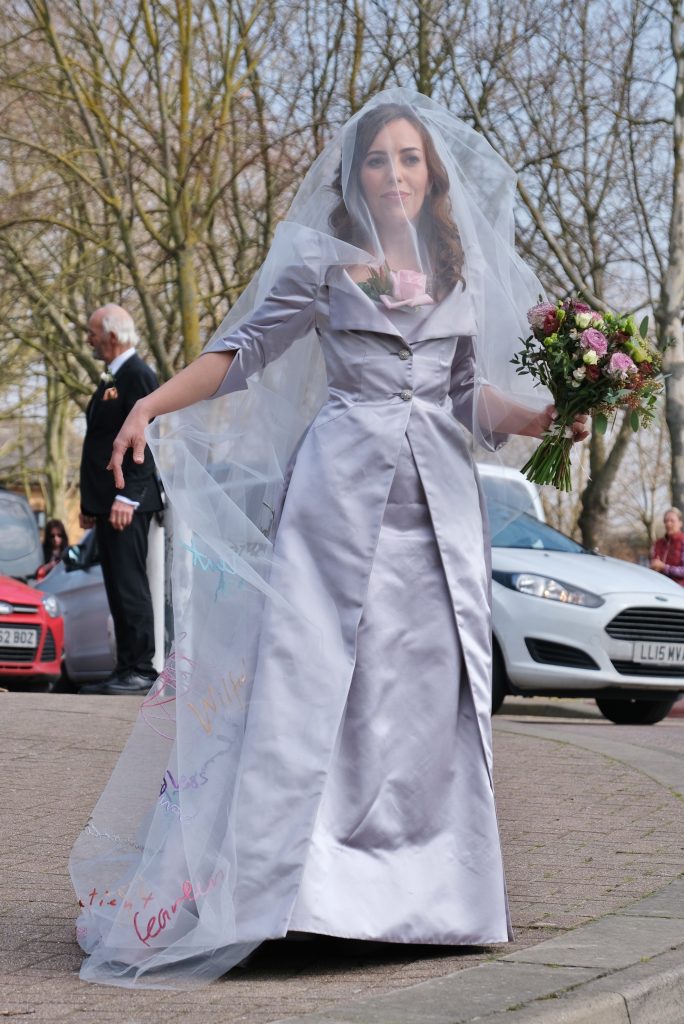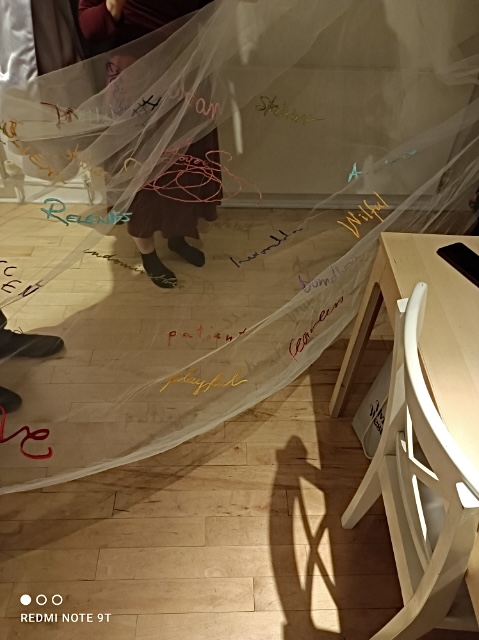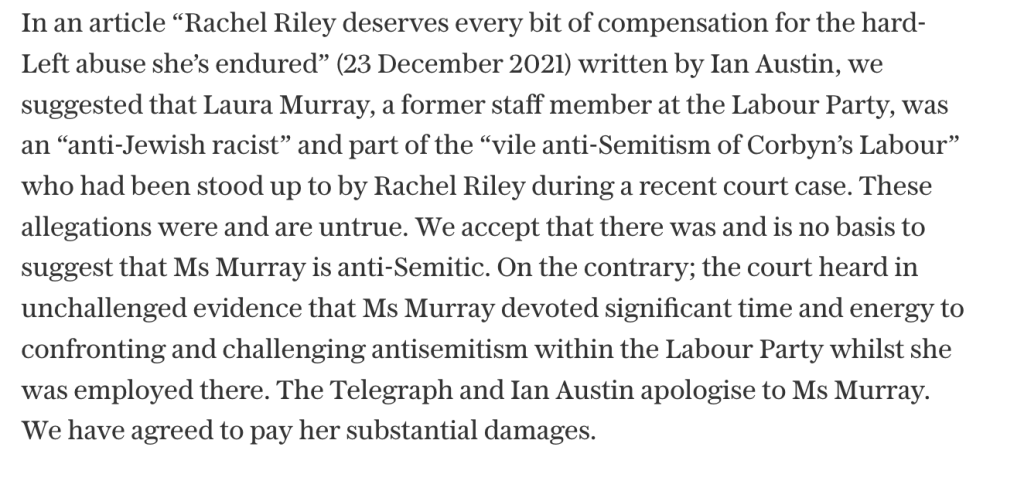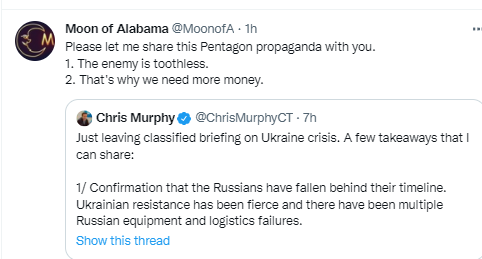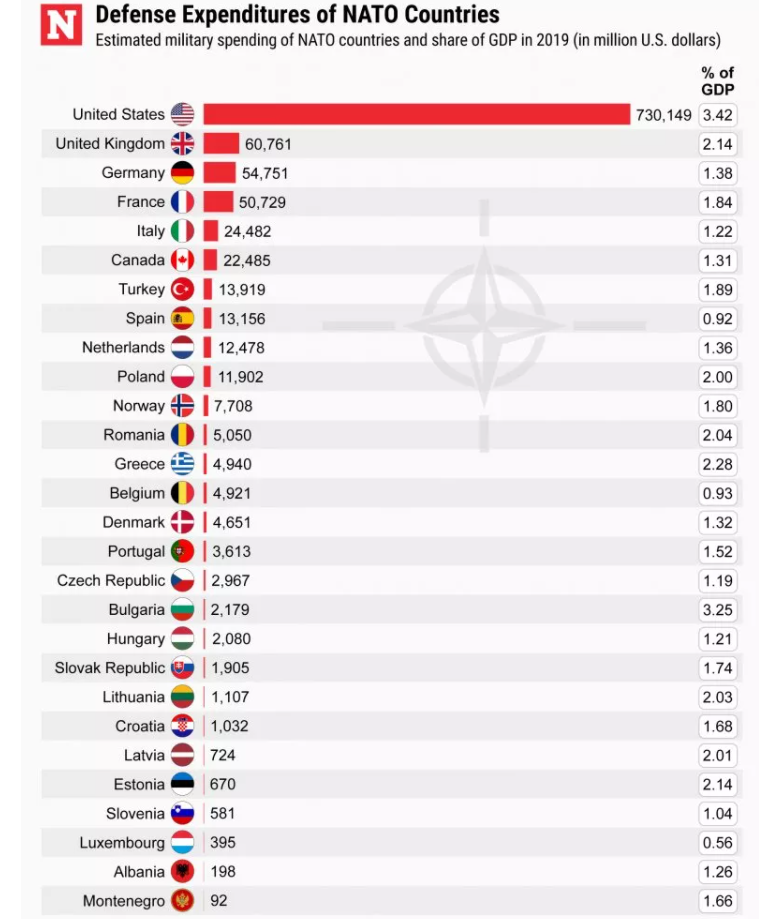You be the judge.
At my appeal last week against imprisonment for journalism, judges opined that my sworn evidence at my trial had been “so self-evidently untrue as not to require cross-examination”, and even that my evidence had never been accepted by the court as existing. They also stated that contempt of court being “summary proceedings”, there was no need to hear my evidence before sending me to jail.
Yet, as I swore on oath, I quite assure you every single word is true. Here it is, as censored by the Crown Office to protect the identities of those who made false accusations against Alex Salmond.
No contrary evidence was produced by the Crown at trial from anybody to refute my evidence. I ask you to answer two questions:
1) Do you think this is “so self-evidently untrue as not to require cross-examination?
2) Why do you think the legal Establishment are so anxious that this evidence does not exist at all?
AFFIDAVIT
of
CRAIG MURRAY, redaction Edinburgh, EH10 redaction
At Edinburgh on the TWENTY FIFTH day of AUGUST 2020, in the presence of David James Finlay Halliday, solicitor and notary public, Halliday Campbell WS, solicitors, redaction, Edinburgh, EH16 redaction, COMPEARED CRAIG MURRAY, redaction, Edinburgh, EH10 redaction who being solemnly sworn hereby DEPONES as follows:-
1. My name is Craig Murray, I reside at redaction, Edinburgh, EH10 redaction. I am 61 years old, a retired diplomat, now a historian and journalist.
2. I was Rector of the University of Dundee (2007-2010) and an Honorary Research Fellow at the University of Lancaster School of Law (2005-9). I am the author of books including Sikunder Burnes, Master of the Great Game (2017), The Catholic Orangemen of Togo (2010) and Murder in Samarkand (2007). The website academia.edu lists over 130 academic peer reviewed articles referencing my work.
3. I was British Ambassador to Uzbekistan 2002-4. Other roles included Deputy High Commissioner to Ghana (1999 – 2002), Deputy Head (Equatorial), Africa Department FCO (1997-9), First Secretary, British Embassy, Warsaw (1993 – 1937), Head of Maritime Section, FCO (1991-3) and Head of Cyprus Section, FCO (1989 -91).
4. Special responsibilities included Head of FCO Section, Embargo Surveillance Centre (1990-1), Alternate Head of UK Delegation to UN Convention on the Law of the Sea (1991-3) and Head of UK Delegation to the Sierra Leone Peace Talks (1998-2000).
5. I have been awarded the Sam Adams Award for Integrity (USA) 2005 and the Primo Alto Qualita Della Citta di Bologna (Italy) 2006 and am an Officer of the Order of Mono (Togo). I have turned down three honours from the British state, OBE, LVO and CVO on grounds of Scottish nationalism, the last two being in the personal gift of Her Majesty the Queen.
6. As a journalist in new media, my output has been focused on my own website, which is nowadays my primary source of income. My articles have however been published in newspapers including the Guardian, Independent, Daily Mail, Mail on Sunday, and very many others both nationally and internationally.
7. I have been shown paragraph 11 of the Lord Advocate’s written submissions, which suggest that I published material not in the public domain because the stated purpose of my blog is to use insider knowledge of government to interpret contemporary events. What I said is not a reference to acquiring material from inside the Scottish Government and publishing it. It is a reference to using my experience at the Foreign and Commonwealth Office to provide authoritative commentary on, and interpretation of, contemporary events, whether in Scotland, the United Kingdom or the wider world.
8. In August of 2018 I read the salacious account published by the Daily Record of an alleged sexual assault by Alex Salmond on a civil servant in Bute House. Aspects of the story appeared to me highly unlikely, in particular the willingness of the civil servant to simply obey his instruction of going to the bedroom and lying on the bed. On August 26 2018, I therefore published an article on my blog expressing this opinion.
https://www.craigmurray.org.uk/archives/2018/08/a-short-article-not-mentioning-alex-salmond/
9. I made no attempt to discover the identity of the civil servant involved, but I did make strenuous efforts to discover who had leaked the story to the media, calling and meeting a wide range of contacts in Edinburgh and Glasgow. To my surprise, I discovered with a high degree of certainty that the leaker was Liz Lloyd, Chief of Staff to Nicola Sturgeon. I also discovered that she had a personal history with the journalist concerned and did not link it in my mind to anything wider than that.
10. In January 2019, I published an article following Mr Salmond’s resounding victory in his judicial review case against the Scottish government. My article focused on the abuses of civil service procedure in the pursuit of Alex Salmond by Leslie Evans and Judith Mackinnon, and called for them both to be sacked.
https://www.craigmurray.org.uk/archives/2019/01/the-salmond-stitch-up-the-incredible-facts-and-why-mackinnon-and-evans-must-be-sacked/
11. The article concluded that if Nicola Sturgeon failed to act against them, it might indicate that she was herself involved in the campaign of false allegation against Alex Salmond.
12. As a result of this article, Alex Salmond, with whom I had only very slight prior acquaintance, invited me to meet him in the George Hotel in Edinburgh. Here, for the first time, he told me that Nicola Sturgeon had been behind the process designed to generate false accusations against him. He said as well as Mackinnon and Evans, Liz Lloyd was responsible for the actual orchestration.
13. Mr Salmond further said that the Scottish Government had made every effort to withhold vital evidence from Lord Pentland, who had ordered a process of commission and evidence on the available documentation. It was on the day that witnesses from Nicola Sturgeon’s private office were due to give evidence as to her own knowledge and involvement, that the Scottish Government suddenly conceded the case rather than have this evidence heard.
14. Mr Salmond further told me that there was a massive police operation underway to try to get accusers to come forward against him. This was going to ludicrous lengths. He showed me an email from one woman to him, in which she stated that she had been called in and interviewed by the police because many years ago Alex Salmond had been said by another person to have been seen kissing her on the cheeks in a theatre foyer. The woman stated she had told them it was a perfectly normal greeting. She wished to warn Alex of the police fishing expedition against him. He understood that over 400 people had been interviewed by the police.
15. He said those interviewed by the police had included all the personal protection officers he had as First Minister. They had all said they had seen him do nothing wrong, and they were watching him very closely, as was their job. At least one of these policemen, now retired, had been given a rundown of the evidence by the policeman sent to interview him. The retired officer challenged the interviewer as to how he could be involved in such a corrupt stitch up. He stated that the fact it was a stitch-up was evidenced by the fact all the accusations emanated from the same small coterie, there was not a single accusation from an outside or independent source.
16. That observation stayed with me as I followed and investigated the case over the next year and it remains a key fact. I was strongly inclined to believe Alex Salmond. I am of much the same generation of the Scottish political class and it is a small country. We tend to know each other or of each other. I had never in forty years heard a hint of gossip surrounding Alex Salmond and sexual behaviour, with the single exception of a rumoured redacted attachment with redacted. But that had not involved any rumour of unwanted advances by Mr Salmond, quite the opposite ; it was rather widely believed in nationalist circles that she had set her cap at him. The common joke was that redacted was a booby prize.
17. It had been impossible to follow the judicial review case without concluding that a very unfair process had been undertaken against Alex Salmond, and that it was impossible this could have happened without the knowledge and approval of Nicola Sturgeon. That was a shocking realisation to an Independence supporter like myself. But what Alex Salmond was now telling me went further, which was that Nicola Sturgeon was involved in the orchestration of fake complaints against him. This was fairly astonishing on first hearing.
18. I asked what the motive could be. Alex replied that he did not know ; perhaps it lay in King Lear. He said that he had genuinely intended to quit politics and had lined up a position as Chairman of Johnstone Press, which had fallen because of these allegations. But he had retired from the party leadership before, and then come back, and perhaps Nicola had concluded he needed a stake through the heart. He had made plain to her that he was not happy with her lack of progress towards an Independence referendum following the Brexit vote.
19. Alex Salmond was plainly very unhappy. He said that he believed that Nicola was banking on his loyalty to the SNP and to the Independence movement, thinking that he would not split the party by revealing what or who was behind the allegations against him. At this crucial time, a Salmond/Sturgeon split could derail the chance for Independence and have a truly historic effect. I asked him directly whether this meant he did not want me to publish this information at the moment. He confirmed I should not publish. This conversation was in confidence but, as my blog was highly influential within the Independence movement, he thought it vital that I know the truth as matters develop.
20. I told him that Sturgeon’s hostility towards him seemed to be longstanding. I recounted a story I had been told by Robin McAlpine, of an occasion shortly after his resignation when Alex Salmond had arrived at the Scottish Parliament for a function and the First Minister’s Office had refused to sign him in. Alex replied that this was true ; it was particularly embarrassing as the occasion had been to hand over a large cheque for funds raised for charity following a campaign he had initiated as First Minister. They had been forced to do the photoshoot in the rain outside instead.
21. I advised Alex Salmond that he should continue to fight any allegations vigorously and should not worry in the least about any consequential damage to the SNP or the Yes movement, which were both very robust. If the SNP leadership were behind the attacks on him, it was much better that people know.
22. I also told him I knew exactly how he felt, having been myself subject to false accusation when as British Ambassador I blew the whistle on UK Government collusion with torture in the War on Terror. To be subject to a fit-up, particularly by those you knew and considered friends, was extremely disorienting. I was probably one of the few people in the UK who knew precisely how he felt.
23. The meeting concluded with Alex making the observation that he blamed himself for having established far too centralised a system of power in Scottish Government and the SNP, and not taking account of how far that was open to abuse by a person of ill-will.
24. In June 2019 (I do know the precise date, time and venue but to give it might aid identification of my source with deleterious consequences for them) I met with a person well known in the Independence movement who informed me that they had been present at a meeting with Nicola Sturgeon and key members of her inner circle, including ministers, which had gamed the possible outcome of the Salmond affair. My source was trusted as a Sturgeon loyalist,
25. The view of the meeting was that if Alex Salmond could be convicted on just a single count, he would be destroyed politically forever, which was explicitly the objective. He would be on the register of sex offenders and branded a rapist in the public mind, even if the actual offence convicted was knee touching. I was also told that the Law Officers were confident of a conviction for something, which is why the multiplicity of charges. They apparently advised that, faced with a whole raft of charges, juries tended to compromise in the jury room to reach agreement and convict on a lower charge.
26. What struck me, both at the time and still, was that it was impossible to understand the account as given without it involving of necessity corrupt collusion between Nicola Sturgeon’s ministers and aides and the Crown Office over the handling of the Salmond case and the charges being brought.
27. I directly asked my source why they had been regarded as so trustworthy as to be included in such a meeting. They replied that they were generally highly supportive of « Nicola » and her leadership and had been on the fringes of her inner circle for a while. But they were not happy with the « fitting-up » of Alex Salmond, which they described as « unnecessary ».
28. I was aware that in telling me this my source was playing a double game. I was a British diplomat for over twenty years and a member of the Senior Management Structure of the FCO for over six. Obtaining confidential information from inside government circles, and assessing the credibility of the source and the information, is a core skill set for a diplomat, and I was a highly successful diplomat, becoming the UK’s youngest Ambassador.
29. I considered, using the FCO learnt criteria, the access and motivation of my source and my background knowledge of them, all of which I researched further. My conclusion was that this was a highly credible source with good access. This also squared with my impression ; they had seemed straightforward and no inconsistencies had appeared under question. I had known them for some years. I believed their account, and I still do.
30. At a later date, but substantially in advance of his trial, I informed Alex Salmond in broad terms of this conversation.
31. Equally crucially, this proved not just entirely consistent with all the further information I received, but a good explanation of it. In March 2020 I had explained and briefly shown to me by a source with good access the content of evidence related to the Salmond trial, much of which was to be excluded from the trial itself by the judge as collateral.
32. This material included the message from Peter Murrell, Chief Executive Officer of the SNP, to Sue Ruddick, Chief Operating Officer, to the effect that it was now the right time to put pressure on Police Scotland to move forward against Alex Salmond. It included the message from Ms Ruddick (I do not recall the recipient) to the effect that the problem was with Police Scotland refusing to detail precisely what evidence they required. If they would specify, then she could get that evidence for them. It included the message from Leslie Evans, Permanent Secretary to the Scottish Government, after the Scottish Government had abandoned its judicial review case, to the effect that they had lost a battle but won the war.
33. It included the message from redacted to another complainer to the effect that she had a plan that would enable them to have a strongly detrimental effect on Alex Salmond but have anonymity. It included the message from redacted to the effect that she did not want to attend any further meetings regarding a possible complaint if redacted were going to be present as redacted made her feel pressured rather than supported. It included the message from Ian McCann to the effect that he would sit on redacted‘s complaint until it became necessary to deploy it. It included a number of messages from redacted which gave the impression she was playing a central role in orchestrating and organising complainers, but I do not recall any specific details of those particular individual messages.
34. Even more crucially, this account was consistent with what actually happened at the trial. In common with many observers, I was unimpressed by the performance of Alex Prentice for the prosecution and the truly pathetic and hopeless nature of a number of allegations. The inclusion of daft allegations like the « hair pinging » incident or the easily disproved hand on the knee in the car, are universally agreed to have weakened rather than strengthened the prosecution’s case when there were much more serious incidents admitted to have some basis in truth. Nor did these minor incidents contribute to « Moorov », being of a much lesser order than the main charges. The only way I could make sense of the Crown’s approach was in the light of what had been explained to me months earlier, the idea that the jury might settle on a lesser charge as a form of compromise. So here again, as in other ways, subsequent events are entirely consistent with what I was told in June 2019, and I am confirmed in my belief of corrupt collusion between the Crown Office and Nicola Sturgeon’s office.
35. I should state that I did not take notes at any stage in this investigation, in any meetings, and I am speaking entirely from memory here. That is why I am not giving verbatim messages but my memory of them. I have no doubt my memory is correct in essence. All of these messages are in the Crown’s possession and I trust will be produced to support this statement.
36. Again, my not taking notes reflects FCO training not to write down sensitive information outside of a fully secure environment but rather to remember. In a case involving sexual abuse, I was particularly concerned not to take notes that, if lost or overseen, might identify individuals.
37. In August of 2019, I learnt that my friend the veteran investigative journalist Laurie Flynn had been digging into the events which led to the Court of Session judicial review, and had an article written. I offered to host it on my blog. It was extremely interesting and highlighted the role of redacted, a name that was coming up again and again.
38. I therefore published Laurie’s article on 23 August 2019, and added further comments particularly on the role of redacted, whom I was beginning to consider a rather sinister figure. At this time I had no idea redacted. Indeed, it is very strange indeed, and quite out of order, that redacted was such an active member of the Scottish Government judicial review committee which had decided to contest the civil case, at great expense, and was to decide to concede it, at great expense.
39. In November 2019, I was told by a senior contact within the SNP whom I have known for many years (not the same source from June) that a deal had been struck between Peter Murrell, redacted and redacted whereby redacted would make an allegation of attempted rape against Alex Salmond, and Murrell would redacted return to front line politics redacted. The cold-bloodedness of this infuriated me. By around this time I had learnt the identities of, I believe, all of the complainers, not from a single source but by asking around my contacts. It was not difficult.
40. I realised that something extraordinary and morally disgusting was happening. If the public knew the identities of those being put up to make allegations, and just how close to Nicola Sturgeon they were, they would immediately understand what was happening. But the convention protecting the identities of those making allegations of sexual assault, made such allegations the perfect vehicle for a positive campaign to frame on false charges, while the perpetrators of this conspiracy to pervert the course of justice had the protection of the courts against exposure.
41. That accusers included :
redacted Nicola Sturgeon. First Minister of Scotland Leader of the SNP ;
redacted Ian Blackford, UK Parliamentary Leader for the SNP ;
redacted Angus Robertson, Former UK Parliamentary Leader of the SNP ;
redacted
It would cause a massive political storm were it known to the public, and raise major and in fact fully justified suspicions about motive. The combination of the anonymity of these accusers, and the exclusion from the trial on the grounds of « collateral evidence » – and continued intention of the Crown Office to suppress – of the messages implicating Peter Murrell and Sue Ruddick in the conspiracy, has resulted in the denial to the Scottish public of information which there is the strongest possible public interest in knowing, in order for them to judge the actions of those in power over them.
42. The weight of all this knowledge, and of not being allowed to tell it, was a heavy burden upon me. In general, I strongly support the principle of anonymity for people alleging they are victims of sexual assault. But this was an absolutely unique case. Where the « victims » are actually those wielding very considerable power in the state, and conspiring to frame an innocent man, is the principle of protection for sexual abuse victims of greater public interest than the public interest in being able to form an informed opinion on the massive abuse of state power which was in train ?
43. It was at this stage that I formed the opinion that there were questions here that urgently needed to be addressed, but it was not for me to decide. I therefore formed the view that, after the trial of Alex Salmond was concluded, this question would have to be put before a court, and, when the time came, I acted upon that conviction.
44. There was a period of several months when I was fully aware of the names of the accusers, and also fully aware that there was no general law or court order in place preventing me simply from publishing. That, however, would not have been responsible journalism and I determined to wait until I could put the matter before the court. The fact I did not publish the names when I could, over months, makes ludicrous the accusation of the Lord Advocate that I intentionally leaked out little bits of information as jigsaw identification.
45. I should explain that I was not enjoying this investigation at all. In fact, I hated it and was becoming quite seriously depressed by the shock of what I was uncovering. I had moved back to Scotland in 2014 specifically in order to campaign for Scottish Independence. I have been a member of the Scottish National Party since 2011. It was horribly disillusioning to discover the corruption at the heart of the Scottish Government.
46. I was also in a deep dilemma as to what to do about it ; the same dilemma Alex Salmond was, and is, in. To expose that it was Nicola Sturgeon who masterminded the conspiracy against him would be a real blow to the Independence movement. But to watch a plot to imprison an innocent man potentially for the rest of his life unfold before my eyes was also horrifying. Particularly as the most cynical part of the plot, to use the court anonymity granted to accusers of sexual abuse, to disguise who was actually behind the allegations, appeared to be working.
47. I should add that in May 2019 I met Alex Salmond in London to record a 50 minute interview for his TV company about my life and career, and that I met him again in approximately November 2019 in London for dinner with my good friend, the journalist Peter Oborne. On neither occasion was there substantive discussion of the charges against him.
48. On 21 November 2019, the Crown released substantial details of the charges against Alex Salmond. On 22 November, I looked through the newspapers and every Scottish newspaper had massive front page coverage of the accusations against him, in detail. The front page headline of the Herald read « 10 women ; 14 sexual offences ; Alex Salmond accused ». The details of all charges were printed on the front page, which had no other content. There were two other full pages on it inside.
49. The front page of the Scottish Daily Mail had the headline « Salmond in the dock » and the sub-heading « Former SNP Chief appears at High Court to deny 14 sex offences, including attempted rape, while First Minister ». There was no other story on the front page. There were eight full pages of further coverage inside.
The Daily Record front page had « Salmond on Trial the Charges : 1 attempted rape, 1 intent to rape, 2 indecent assaults, 10 sexual assaults, In the Dock ; 10 women accuse former First Minister of attacks. » There were two further full pages inside.
The Scottish Sun had « Salmond Rape Bid at Bute House Ex-First Minister sex rap ; 10 women, 14 charges ; « pinned a victim down » and no other story on the front page.
The Daily Express had « Salmond Made Naked Rape Bid – Full details of 14 sex charges revealed ; Claims involve 10 women over 6 years ; I am innocent says ex-First Minister » and no other story on the front page, with four more pages inside.
The Scotsman had « Salmond, the charges ; Former First Minister accused of lying naked on top of woman and trying to rape her in Bute House » and no other story on the front page.
50. Broadcast media took the same tone. I was deeply concerned by the entire tenor of the press coverage, which appeared to be highly hostile to Salmond and present matters in a way that would be bound to influence potential jurors against him. I was also surprised by the sheer detail in the charges which the Crown Office had presented to the media.
51. This worried me because it creates a huge imbalance in media coverage and thus in public opinion. The Crown can release salacious detail about attempted rape while lying naked on top of somebody in bed, and the media can echo this to the heavens. But from that moment, nobody can publish anything to contradict the Crown without being in contempt of court. It seemed to me that, in these circumstances, the Crown ought to have been a great deal more restrained in the amount of salacious detail it was making available. Certainly, there was nothing in what was happening which would contradict the information I had been given of the Crown Office being party to a political plot to destroy Salmond.
52. In mid January 2020 I took part in an AUOB march through Glasgow which took place in a major storm. It was followed by a press conference at which I spoke and then by a joint strategy meeting with Plaid Cymru, all in soaked clothes. I have heart and lung conditions of longstanding and the over-exertion and hypothermia resulted in an ambulance being called later that evening. I refused hospitalisation because I was too busy.
53. However, the scare led me to write my « Yes Minister Fan Fiction » article of 18 January 2020 because, as the article plainly states, there were things I would not wish to die without having told.
54. It was, however ,a challenge to work out how to tell them without being in contempt of court given the charges against Alex Salmond. I therefore very carefully used a number of strategies not to be in contempt of court. Not to evade contempt of court charges ; actually not to be in contempt of court.
55. Perhaps the most vital strategy was what I would call post-dated cheque information. By which I meant, to leave information that people would not understand the ramifications of now, but would after the trial or once further evidence emerged. This applies most clearly to the redacted deal of redacted.
56. In January 2020, it was not widely known at all that redacted. Therefore, when I wrote : « I was thinking more of his wife, Permanent Secretary. redacted » my readership had no idea what I was talking about.
57. As with other information recounted above, it is remarkable how precisely events as they have unfolded have proven my sources were right. It is now notorious in Scottish political circles that the National Executive of the SNP last week adopted measures which effectively redacted, and did so in order to redacted. Many articles have appeared in the media to that effect. I regret that, redacted identity still being protected, I am not able to republish my article to show that I knew in advance and show what lies behind it. Nobody reads old articles on the blog ; very few people read articles below the first two on the homepage, and it is rare for articles to be read at all once they fall off the homepage (about two weeks). This is particularly true as Google de-ranks alternative or independent news sites.
58. At the time I wrote this article there was no order in force against publication of names. I nevertheless decided not to do that. I did not name redacted, instead using the alias « marmalade ». This was a private joke to myself referencing redacted. I was not in fact particularly thinking of redacted, or I would have called him « Keiller ».
59. I also did not give the names of either Sturgeon, Evans redacted Ms Sturgeon’s private secretary was, of course, male.
60. I further wrote the article as a satirical piece to disguise the nuggets of truth, in the manner of a Yes Minister script. As Jack Point put it :
« Oh winnow of my folly and you’ll find
A grain or two of truth among the chaff »
Satire has been for centuries a licensed vehicle for literary, social and political commentators, from Martial through Chaucer, Pope and Swift to Peter Cook. I find it hard to believe the Lord Advocate is seeking to prosecute satire – or I would have found it hard to believe, had I not been on this extraordinary journey of revelation of the corruption of the Scottish state.
61. I was particularly keen to satirise the Moorov doctrine. A lot of mince is still just mince – it does not turn into sirloin steak just because you have a lot of it. But, in doing so, I was also referencing the account I had been given in June 2019 of the tactics being employed by the prosecution, and seeking to make it plain to the Sturgeon circle that I knew precisely how their scheme was supposed to operate. That would have been entirely obscure to the general reader.
62. I was engaged in booking acts for the Doune the Rabbit Hole music festival, of which I am a director. I came up with the pseudonym « Orpheus » for Alex Salmond because I had just finished booking the Morriston Orpheus Male Voice Choir. I came up with the pseudonym Barclay simply because I was making bank payments.
63. The notion that this cryptic, satirical article, described as fiction, on a personal blog, would influence a jury is fanciful. When compared to the absolute torrent of hostile mainstream media material fed by the Crown Office, as detailed above, and vicious social media comment, aimed at Alex Salmond, the fact that the Crown Office are prosecuting only an extremely rare news source sympathetic to Salmond is, in my view, deeply sinister in the light of everything I have stated so far about the Crown Office – and more is to come.
64. On 21 January 2019, I received an email from the Crown Office requesting me to take down my Yes Minister Fan Fiction article as they considered it to be in contempt of court. I did not consider it to be in contempt of court- I had written it carefully not to be – so I did not take it down.
65. I was concerned about the constitutional implications of the Crown’s letter, and I still am. The Crown gave no indication of why they believed the article to be in contempt of court. When , many weeks later, I received the Lord Advocate’s Petition and Complaint, it appeared to indicate that they considered it was in contempt for jigsaw identification – but that made no sense, as when the Crown wrote to me on 21 January 2019 there was no order in place to protect the identities. The Petition gives no indication that the Crown was alleging that article might prejudice the jury. That argument only arrives months later again, in the Lord Advocate’s written submission.
66. I considered the matter very carefully. The rule of law is not arbitrary. If the Crown, without the intervention of a judge, has the power to censor publication, we are putting liberty in Scotland back several hundred years. The Crown Office cannot just order censorship on entirely spurious grounds thought up several months later.
67. I made a very conscious decision to content myself with the idea that, if they really thought I was in contempt of court, they would bring it to court and a judge could decide whether I was right or they were right. If they genuinely thought my article might influence a jury, given they were well aware of the article and wrote to me about it, the Crown Office had an obvious public duty to act before a trial to prevent that evil. I would have happily turned up in court and argued my case. To wait until long after the trial, after it is far too late to avert the evil they purport to be concerned about, and then make that allegation against me, is plainly pointless and vindictive and, again, sinister.
68. I visited the High Court before the trial to find out how to attend and report. I attempted to register as a journalist, but was given the absolute runaround between the Scottish Courts and Tribunal Service and Judicial Communications. I suspect this is simply because their systems are geared to the outdated days of traditional media. I was unable to obtain accreditation, and thus could not be present for the prosecution evidence.
69. I therefore wrote up my commentary on Day 1 of the court case in an article entitled « The Alex Salmond Trial : Your Man Excluded from the Gallery » with some wider commentary about the context of the trial and the laws of evidence in Scotland, but with reporting of events in the trial itself entirely based upon what was published by other journalists inside the court. I was particularly following James Doleman, Philip Sim and Radio Forth and also the Grouse Beater blog which itself was purely drawing on published sources. I stated this explicitly in the article « If you look through the twitter lines, you will see that journalists between them have missed at least three quarters of what is said in court. Because I am not there I am dependent on their selection of material. » I published nothing of the evidence – literally nothing – that had not been published by other journalists.
70. I had clearly at the forefront of my mind the desire to avoid identification of redacted, even though there was at that time no order in place to protect her identity. I am satisfied that I succeeded in this.
71. By my next report on 12 March, I was a little more organised and had sources inside the court giving me additional information. I thus knew fairly well in real time of the order protecting identities, and was still more careful. It was necessary, for the public to have an understanding of the basics of the case, to explain that several of the accusers held senior positions in SNP structures, but I was very careful to ensure I gave no details of actual positions or who worked in Edinburgh, who worked in London etc. This continued throughout the trial.
72. On 18 and 19 March, when I finally gained access to the court, I continued this policy of taking great care. In writing up that evening, I google searched on two particular pieces of evidence to check I was not giving away identities. For example, I searched many combinations of terms for Salmond, Alexander Anderson, helicopter, Stirling Castle and Gleneagles to ensure that my article could not lead to identification of redacted. I was satisfied it could not, and published my account with good conscience.
73. On the other hand, I found that google searches around the meeting of Geoff Aberdein with Nicola Sturgeon on 29 March very readily brought up the fact that redacted. I therefore amended my draft to delete reference to her presence at that meeting, even though that meeting is, from a political point of view, perhaps the most significant fact to have emerged from the trial, as it shows Nicola Sturgeon to have misled Parliament about when she first knew of allegations.
74. By contrast, the entire mainstream media published details of that meeting including redacted. Stuart Campbell has been pursuing this fact in correspondence with the Crown office. Kirsty Wark repeated this very simple jigsaw identification of redacted in the recent BBC documentary The Trial of Alex Salmond.
75. There is a very good list of articles which included this jigsaw information which I rigorously excluded to be found in the letter from the Crown Office to the Reverend Stuart Campbell of 19 August which you can see here :
https://wingsoverscotland.com/wp-content/uploads/2020/08/copfs19aug2020-1.jpg
76. I was much more careful to avoid jigsaw identification here than the mainstream media. After I was astonished to be charged with contempt by the Crown Office, I sought objective proof of this by commissioning an opinion poll from Panelbase.
77. This poll, conducted according to industry leading survey techniques, cannot establish whether anybody is correct in their presumed identification of witnesses. But it shows that, of those who believe they have identified witnesses, 66% believe they learnt the identities from TV or newspapers. One person named my blog as a source – in among many more names of mainstream media journalists. The individual who was most named as giving away identities, most named by a margin, was journalist Dani Garavelli. It is of course possible that the individual who named my blog was referring to the re-publication for comment of one of Garavelli’s articles on my blog.
78. I am not a lawyer. But, to a layman, it is remarkable to me that the Crown Office is prosecuting me citing my commentary on Garavelli’s article as contempt of court, whereas Garavelli’s article itself has not led to Garavelli being prosecuted, even though opinion poll evidence shows she was named far more than I as a source of identification. Given that Garavelli’s work is vehemently anti-Salmond while the Crown Office is prosecuting the most prominent pro-Salmond journalist, I would say this is, in the context of all else I have testified, sinister.
79. In publishing all of my accounts of the trial, I was extremely mindful of both the law of contempt of court and of my desire not to identify witnesses. The constraints were not just at the back of my mind, but right at the front of my mind, to the extent that there is highly considered discussion of these issues included in my articles throughout my reporting of the case.
80. But I was also strongly aware of a public duty to inform the public of the defence evidence. As already noted, the Crown had given the media, and the media had extravagantly published, salacious detail of the prosecution’s charges from long before the trial. When the prosecution evidence was led, there was again for the first few days an absolute frenzy of front page, news bulletin leading reporting, again focused exclusively on the most salacious and sensational extracts from what the accusers said in court.
81. Then, when the defence witnesses stood up one after another, without the benefit of anonymity, and gave their evidence under oath, there was virtually nothing. I witnessed the ranks of media in front of the public gallery literally shut their notebooks. Virtually no media reporting appeared of the fact that redacted could not have had her alleged morning exchange with Tasmina Ahmed Sheikh because the latter’s father had died that morning. Nor of the two separate eye witnesses, feet away, who testified that redacted was not groped at the Stirling Castle photocall. No account was given of Janet Watt, line manager, denying she had been told of incidents as claimed. Nor of Alex Bell, who detests Alex Salmond, nevertheless testifying that he did not see the claimed scene by the Jack Vettriano painting. I could go on and on with all the defence evidence which the media did not mention.
82. The general media situation is perfectly exampled in the subsequent BBC documentary, « The Trial of Alex Salmond », broadcast by the BBC on 17 and 18 October and fronted by Kirsty Wark. While purporting to be a day to day account of the trial and adopting a « Day 1 », « Day 2 » etc format, incredibly the documentary simply skipped from Day 7 to Day 10 and missed out the defence witnesses. That is just what the overwhelming majority of the media did – quite deliberately, of course. There can be no serious argument against the proposition that the Scottish mainstream media is overwhelmingly hostile to Alex Salmond.
83. It is a simple statement of fact that the only reason any measurable section of the Scottish population has the slightest idea of what the defence evidence was, is that it was published on my blog. Otherwise they would only have the false mainstream media presentation of highly selective quotes from Gordon Jackson to the effect that Salmond could have been a better man, but inappropriate does not mean criminal, and the deliberately created false impression that the jury was faced with only « he said, she said » decisions. The third party eye witnesses who challenged key aspects of accusers’ evidence went mostly unreported, except by me.
84. In a case with such massive political ramifications, in giving a fair account of the defence evidence I fulfilled a democratic duty I felt a strong obligation to fulfil. I am very proud of my role. And I did it while all the time keeping a very careful eye indeed on the line of jigsaw identification and contempt of court. That I was up to the line I readily admit ; a fast bowler does not deliver from behind the stumps lest he overshoot the crease and bowl a no ball. But I was very careful indeed not to cross the line.
85. It was put to me during the trial (I believe by the court reporter James Doleman, who I know from our both covering the Julian Assange hearing) that the law of contempt of court dictates in sexual abuse cases that the prosecution case can be widely reported but the defence case cannot be reported. The reason is jigsaw identification. He told me as a warning to be very careful.
86. His reasoning went like this. The Crown at the time of charge releases to the media details of all the charges. So they have released, for example, that a hypothetical woman X was assaulted in Bute House on 1 January. So when woman X gives evidence, you can publish it in detail because the Crown had already released it. However, if, in recounting the defence evidence, it were a relevant fact that she had a blue car, you could not mention it, because of jigsaw identification. The fact that her being in Bute House on 1 January would quite literally be a million times more identifying than possession of a blue car was irrelevant. So you could report the accusation but not the defence.
87. I considered this very carefully with regard to my reporting of the case, and it relates directly to the charges against me. It is highly identifying to say that a woman was with Alex Salmond in an official capacity on a visit to China, close enough to him to travel in his car and be with him in the lift. That is all extremely identifying ; everybody reported it because it was part of the prosecution case. Yet there is only one person that can be. But for me to report as part of the defence that she had curly hair – as do over 15% of the population – is jigsaw identification. I considered the argument the Lord Advocate now puts forward, before I published the piece, and considered it patently absurd.
88. I also considered that, if that were truly a statement of Scots Law, then the effect is obviously perverse. That only the prosecution case may be published and not the defence, would mean that even an innocent man found innocent, would forever be damaged in the eyes of the public who would know the detailed accusations against him but not why he was found innocent. That cannot be the intention of the law.
89. Nor can it be the intention of the law, as in the Alex Salmond verdict, that the accusers should even after the not guilty and not proven verdicts, continue a massive media campaign from behind the veil of anonymity against the acquitted man. This appears to me a massive abuse of the court order granting anonymity and I cannot believe that this was the intention of Lady Dorrian when she granted the order. I shall return to this subject shortly.
90. On the morning of 20 March, I was as usual waiting with my ticket to enter the public gallery, when Alex Prentice emerged from a door to the left of a court room entrance, paused and appeared to stare at me before continuing on into the courtroom. The supposed start time for the court came and went with the queue still outside, and then I was approached by two police officers, in front of everyone, and marched from the court. This was very humiliating, particularly as some pleasure was evident among the queue of mainstream media journalists who had come to demonise Alex Salmond.
91. The police were very pleasant but, in reply to my direct question, stated that they had no idea why I was being removed. The court staff at the front door stated the same. I therefore went home.
92. I now know that the court had heard a motion for my exclusion from the prosecution on the grounds of alleged contempt of court. I believe strongly that it was contrary to natural justice that the judge and prosecution should have been discussing me while I stood directly outside the court door, and I was not given any hearing or even accorded the common decency and respect of being informed what was happening. This is in stark contrast to events on the morning of the 10th March when an accredited member of the media, said to have tweeted out an identity – much more than I had done – was permitted to be present while the matter was discussed in closed court and was asked if he had anything to say.
93. My only complaint of the court refers to my own treatment, and, while I believe my treatment was wrong, I accept that the judge had infinitely weightier matters to deal with and was perhaps irritated by this minor distraction. As I stated directly in my article, my impression of both judge and jury in the two days I was permitted in to the Salmond trial is that they were doing their jobs in a highly impressive manner. On 18 March I published :
94. « The Court itself was impressive ; Lady Dorrian presided with exemplary fairness, dealing quickly and sensibly with points that arose on admissibility of evidence. The jury of 15 citizens looked engaged and earnest throughout. The impression of my first day is that it is a process that deserves respect and trust, something I never felt at an Assange hearing ».
95. On 19 March I published :
« There I will bow to the judge – who I continue to find very fair ».
96. After exclusion from the court on 20 March, I wrote an article complaining about the arbitrary manner of my treatment. I also phoned the court for more information, and was eventually called back by the clerk of the court, who could not tell me exactly why I had been excluded, but did tell me that the exclusion was for the duration of the trial, not just for the day. Neither he nor the other court staff of whom I had inquired as to what was happening told me that an order had been made banning the publication of the fact I had been excluded from the court. That seems a quite extraordinarily arbitrary proceeding – not only to ban a journalist from a public trial without allowing him any representations, but to also make it illegal to state he was banned. It sounds like something from a dictatorship, not from Scotland.
97. I have a strong basis in knowledge of human rights from my diplomatic career and have a sound knowledge of the Council of Europe (to whose Parliamentary Assembly I have indeed given evidence on human rights, as I have to the Westminster Parliament Joint Committee on Human Rights and to the European Parliament Committee on Human Rights). I had no doubt that the entire circumstance surrounding my arbitrary banning from court without representation and the banning of any mention of that fact raises serious concerns.
98. I note the Crown Office claim to have written to me at this stage. I received nothing from them, either by email or post. Their letter of 21 January I had received both by email and by post, and had to sign for the postal letter. I do not know what happened about their subsequent purported communication, if anything.
99. Following the verdict, Alex Salmond stood on the steps of the High Court, referred to the evidence he had not been permitted to lead, and stated that a day of reckoning would come when the full truth would be set out, but explained that this would have to be deferred until after the Covid crisis has passed.
100. This came as a massive disappointment to me. Having known all about the conspiracy that lay behind his trial, I had hugely been looking forward to the day when it would be possible to publish the truth about the conspiracy behind these charges. I had assumed that Alex Salmond would himself immediately point the finger at Nicola Sturgeon, Peter Murrell, Sue Ruddick and the other conspirators who could be named because they did not have the court granted anonymity of redacted and others. But I deferred to Alex Salmond’s wishes in not publishing the full truth. As I published in my article of 30 March 2020, « I have, absolutely against my own instincts, deferred to Alex Salmond’s noble but in my view over-generous wish to wait until the Covid-19 virus has passed before giving all the names of those involved and presenting the supporting documents ».
101. The documents to which I referred were those mentioned above ; they proved the culpability of people including Murrell, Ruddick and McCann, whose anonymity is not protected. I was not aware when I wrote that the effort to suppress these documents – which frankly will be key documents in the course of Scottish history – was going to extend beyond the trial, that they would be kept even from the Holyrood inquiry, and that the Crown would seek to deny their use for my own trial.
102. I had been struck by the facts surrounding the exclusion of juror RR. He had been loud in asserting that he believed Salmond to be innocent. I found the circumstances surrounding juror RR’s reporting to the police very suspicious, just as I find the circumstances surrounding the taping of Gordon Jackson on the train very suspicious. If a juror said too much in conversation, a minority of people might know enough to tell him he really should not be talking that way. To walk away and clipe him up to the police seems to me an extreme and entirely unnatural reaction. It seems to me a great deal more likely that juror RR was set up ; particularly as the lady who engaged him in the conversation worked for a Scottish Government agency.
103. I actually drafted all that, but then did not publish it as it would have been in contempt of court. I decided instead to give no details at all. I am genuinely puzzled as to what the Lord Advocate thinks is actionable on that.
104. Unfortunately, Alex Salmond’s declaration of a « covid truce » on proceedings was not matched by the conspirators. They immediately began a concerted campaign to undermine the verdict in public opinion and to attack the reputation of the court and the jury. The campaign was fronted by Rape Crisis Scotland, an almost entirely Scottish Government funded organisation whose funding is under the control of officials whose management line redacted whose story of a knee grab on the very short ride from Pizza Express Holyrood to Waverley Station had been comprehensively debunked at trial.
105. The nine complainers in the case signed a joint letter maintaining their accusations against Alex Salmond, which was carried at saturation levels by the entire Scottish media, and was curious given that the complainers were purported by the Crown to be unconnected to one another. In a whole series of interviews across all Scottish media, Rape Crisis Scotland argued, in effect, that the verdict had been perverse, an example of the justice system failing abused women, and even was used by Rape Crisis Scotland to argue directly for the abolition of jury trials in sexual assault cases.
106. The campaign culminated at that time in an article written by Dani Garavelli for Tortoise Media and repeated in Scotland on Sunday, the Sunday edition of the Scotsman, which it is impossible to read other than as a sustained attack upon the court and the verdict. It was a particularly tendentious piece of work because it again repeated all the major accusations, with sympathetic personal interviews with five of the complainers, while omitting to mention a single one of the defence witnesses or any of the defence evidence that had shown them to be wrong and, in several cases, actually lying.
107. What is more, the Garavelli article again made very plain the identity of redacted by jigsaw identification and potentially of others, including redacted who redacted. It is of definite significance that, in the opinion poll I commissioned to get objective evidence of jigsaw identification, Dani Garavelli was by a significant margin the most named source by the public for complainer identification. The decision by the Lord Advocate to prosecute me, a very rare Salmond supporter with an audience, and not prosecute Garavelli, the media cheerleader for the anti-Salmond cause, appears not just selective prosecution, it is political persecution.
108. The great irony of this is that I am the one upholding the dignity of the court and explaining to the public why a diligent jury reached the sound verdict it did, while Garavelli is attacking the verdict of the court and doing so by omitting the crucial defence evidence that the jury heard. She also characterises individual jury members in her article. Yet it is I, the supporter of the court, who is allegedly in contempt, while the attackers of the court are not. The truth is, of course, that the failed prosecutors are favouring those who support the prosecution ; that these failed prosecutors get to decide who is tried for contempt is an abuse of process.
109. I decided that the best way to deal with the Garavelli article and with the entire avalanche of anti-court propaganda was to write my article « I have a plan so we can remain anonymous but have maximum effect » in which I reproduced Garavelli’s article in its entirety, with paragraphs of my commentary under her paragraphs where appropriate. The Crown production of this article in the bundle given to me has not printed out the contrasting colours, so the court will find it extremely difficult to follow what is me and what is Garavelli. This however is Garavelli :
« When the time came, the foreman stood up and said Not Guilty to 12 of the 13 charges. The verdict of the charge involving woman F – sexual assault with intent to rape – was found Not Proven, which is also an acquittal. None of the verdicts were unanimous. The foreman seemed content with decisions he was conveying, but others were not. One young-ish juror with glasses sat with his head bowed »
Followed by me commenting on Garavelli
« Garavelli has no idea how that youngish juror voted. Here again is a blatant attempt to convey that this was a perverse verdict… Garavelli is incidentally in very grave contempt of court in clearly identifying an individual juror and how she thinks he voted. Garavelli will of course be protected by the Establishment from any consequences of this ».
110. I was absolutely correct on all counts. It is a further example of the extreme consciousness of the law of contempt of court with which I wrote throughout. I had a great deal more respect for the rules of contempt than the Lord Advocate, who plainly only applies them to opponents of his prosecution of Alex Salmond.
111. As the accusers continued their public campaign against the verdict of the court, and continued their conspiracy after the verdict to destroy Alex Salmond politically from behind the screen of court enforced anonymity, I decided the time had now come to put before a court the question of whether that anonymity should be upheld even in these extreme and unique circumstances. The public interest in knowing that it was those in positions of great power in the Scottish Government who had colluded against Alex Salmond might well outweigh the general public interest in anonymity for complainers of sexual abuse.
112. On 31 March 2020, I therefore contacted my solicitor to find a QC to draw up a petition to court for the court to decide. We received a draft application from Craig Sandison QC on 15 April 2020, funded at my own expense. I was considering how to proceed, particularly in the light of Covid lockdown, when I was astonished to find myself charged with contempt of court a week or so later.
113. On 23 April 2020, two policemen came to my door and left on the doorstep a letter which, when I opened it a day later (early Covid precaution!), was from the Crown Office telling me I was charged with contempt of court.
114. Remarkably, within minutes of the police arriving, I received an email from Kieran Andrews of the Times newspaper, stating that
« The Crown Office has confirmed that it has started contempt of court proceedings against you in relation to the Alex Salmond trial. Would you like to comment? «
We are not children. This is plainly a polite lie. Mr Andrews had not telephoned the Crown office that day and asked « I say, did you happen to charge Craig Murray with anything today ? ». What had happened was that the Crown Office, in keeping with its highly politicised and corrupt behaviour through all of the events which I have here recounted, had phoned a reliably anti-Salmond journalist and tipped him off about the charges against me. I believe that the Crown Office is deeply corrupt.
115. In reading the Lord Advocate’s petition and learning of the charge of jigsaw identification, it seemed to me that his charge was entirely subjective. The Lord Advocate appeared to appreciate the need for some kind of proof, as he prayed in aid a number of tweets as evidence that people had identified. But his understanding of Twitter appeared extremely naive. With a single exception, not one of these tweets showed they had correctly identified anyone (and that single one did not prove I was the reason). On the contrary, many of them were from bad faith actors or Twitter « trolls » with fake identities – « Tamara Patel » is a good example of a long term troll on my account with multiple other identities, including « Harry Johnson » and « James », whose claim to identify from my posts the Lord Advocate foolishly takes at face value. Others show in their Twitter handles that they are dedicated political opponents, i.e. some show union flags and one profile describes a « unionist » and « Rangers supporter ».
116. Nevertheless, in quoting these evidentially valueless tweets the Lord Advocate did seem to be acknowledging the desirability of some objective measure of likelihood to identify, so I set myself to think about whether I could help supply the Lord Advocate’s deficit of reason.
117. I came up the idea that whether or not I had been likely to identify would be objectively demonstrable by obtaining a sufficiently large sample of the population, and that the way to do this was through a professional survey company. I therefore commissioned an opinion poll from Panelbase, the results of which I append and which I believe will assist the court.
118. The survey could not check whether people really know the identities of failed complainers, but it does show that a remarkable 8% of the population believe that they do – that equates to about 350,000 adults in Scotland who think they know one or more identities. The number will have risen since, particularly after the Kirsty Wark BBC documentary which pretty plainly identified redacted.
119. Asked how they know identities, 66% said they knew from newspaper, TV or radio reporting. Given a free field to identify individual sources, seventeen different news sources were named, several multiple times, with a single mention of my website. Eight different journalists were named, some multiple times, and not including me. The most mentioned source as Scotland on Sunday/The Scotsman, where Dani Garavelli’s article appeared, and the most mentioned journalist was Dani Garavelli, who is the prosecution’s biggest cheerleader, and is not being charged.
All of which is the truth as the deponent shall answer to God.
Signed
Affidavit 2
SUPPLEMENTARY AFFIDAVIT
of
CRAIG MURRAY, redacted, Edinburgh, EH10 redacted
At Edinburgh on the TWENTY FIFTH day of JANUARY 2021, in the presence of David James Finlay Halliday, solicitor and notary public, Halliday Campbell WS, solicitors, redacted, Edinburgh, EH16 redacted, COMPEARED CRAIG MURRAY, redacted, Edinburgh, EH10 redacted who being solemnly sworn hereby DEPONES as follows:-
1. My name is Craig Murray, I reside at redacted, Edinburgh, EH10 redacted. I give this affidavit in supplement to the one I have previously given in connection with the contempt of court proceedings brought against me. My intention in doing so is to provide more information for the Court on the context in which I published my articles and tweets, and my reasons for doing so.
2. I was Rector of the University of Dundee (2007-2010) and an Honorary Research Fellow at the University of Lancaster School of Law (2005-9). I am the author of books including Sikunder Burnes, Master of the Great Game (2017), The Catholic Orangemen of Togo (2010) and Murder in Samarkand (2007). The website academia.edu lists over 140 academic peer reviewed articles referencing my work.
3. I was British Ambassador to Uzbekistan 2002-4. Other roles included Deputy High Commissioner to Ghana (1999 – 2002), Deputy Head (Equatorial), Africa Department FCO (1997-9), First Secretary, British Embassy, Warsaw (1993 – 1997), Head of Maritime Section, FCO (1991-3) and Head of Cyprus Section, FCO (1989 -91).
4. Special responsibilities included Head of FCO Section, Embargo Surveillance Centre (1990-1), Alternate Head of UK Delegation to UN Convention on the Law of the Sea (1991-3) and Head of UK Delegation to the Sierra Leone Peace Talks (1998-2000).
5. I have been awarded the Sam Adams Award for Integrity (USA) 2005 and the Primo Alto Qualita Della Citta di Bologna (Italy) 2006 and am an Officier of the Order of Mono (Togo). I have turned down three honours from the British state, OBE, LVO and CVO on grounds of Scottish nationalism, the last two being in the personal gift of Her Majesty the Queen.
6. As a journalist in new media, my output has been focused on my own website, which is nowadays my primary source of income. My articles have however been published in newspapers including The Guardian, Independent, Daily Mail, Mail on Sunday, and very many others both nationally and internationally.
7. In or around March 2019, and from time to time over several months thereafter, I became aware of information tending to show that senior members of the SNP had sought improperly to involve themselves in the Salmond case. This included meeting with women to urge them to make or persevere with complaints to the police, coordination of complainers and their stories, liaison with the police over charges and attempts to persuade individuals other than the complainers to come forward as witnesses to allegations, which attempts were unsuccessful. I formed the view that these were genuine accounts, as they came from complementary sources who had access to the material under discussion.
I believed this to constitute prima facie evidence of, at the very least, politically motivated efforts to recruit and encourage complainers, and of illegitimate attempts to persuade “witnesses” to give evidence that, taken together, could amount to conspiracy to pervert the course of justice. As this involved some of the most politically powerful individuals and forces in Scotland, I believed there to be the strongest possible public interest in these facts and in publication of them.
8. Before I published many of the articles and tweets that are the subject of these proceedings, I saw the information listed in this paragraph. I was not given copies of any of these documents and have never possessed any, other than Ann Harvey’s email, which was given to my solicitors at Ms Harvey’s request on 19 January 2021 to assist in my defence and is now produced as production 41 and which I can confirm was the version I saw. I wish to make plain the documents were each shown to me briefly on a screen and my recollection of them is from memory. Doubtless there will be minor errors in my recollection but I have no doubt of the purport, gist and individuals involved. The information was:
(a) A series of written communications involving Peter Murrell, Chief Executive Officer of the SNP, and Sue Ruddick, Chief Operating Officer of the SNP. They discussed inter alia a pub lunch or similar occasion between Ian McCann, a SNP staff member working for them, and redacted, one of the complainers in the HM Advocate v Salmond trial. At the lunch, Mr Murrell and Ms Ruddick expected redacted to firm up her commitment to giving evidence against Alex Salmond, and to discuss progress on bringing in others to make complaints. They expressed dissatisfaction at Mr McCann for his performance in achieving these objectives and expressed doubt as to his commitment to the cause.
(b) A communication from Ms Ruddick to Mr Murrell in which she explained to Mr Murrell that progress on the case was being delayed by Police Scotland and/or the COPFS saying there was insufficient evidence, and in which communication she expressed the sentiment that, if the police/Crown would specify the precise evidence needed, she would get it for them.
(c) Text messages from Mr Murrell to Ms Ruddick stating that it was a good time to pressure the police, and that the more fronts Alex Salmond had to fight on the better.
(d) Communications from Ms Ruddick about her visits to a number of locations, including the Glenrothes area, and including in conjunction or discussion with redacted. These communications detail their unsuccessful attempts to find witnesses who would corroborate allegations of inappropriate behaviour against Alex Salmond. They include a report of a meeting with young people who were small children at the time of the incident they were seeking to allege, who did not provide the corroboration sought.
(e) A message from redacted stating that she would not attend a meeting if redacted were also present as she felt pressured to make a complaint rather than supported.
(f) Messages in the WhatsApp group of SNP Special Advisers, particularly one saying that they would “destroy” Alex Salmond and one referring to Scotland’s ‘Harvey Weinstein moment’, employing the #MeToo hashtag.
9. That information formed some of the basis for the articles and tweets I published before and during the trial. I supplemented that information from my own attendance at the trial as a journalist and from other media reports of the trial. In my articles, I sought to provided reporting of, and commentary on, the HM Advocate v Salmond trial, and also to provide wider commentary on the trial and the political context in which it took place.
10. It was in the course of that wider commentary on the trial that I stated my reasonable belief, based on the information I had seen, that the criminal charges against Alex Salmond were the result of orchestrated work by senior members of the Scottish Government and the Scottish National Party.
11. Before publishing my articles and tweets on the wider context of the trial, I saw the information set out at paragraph 8(a)-(f) above. As I have stated at paragraph 3 above, I considered that this information was genuine. I also considered that it showed that: (i) that senior members of the Scottish Government/SNP had sought improperly to involve themselves in the inquiry into Alex Salmond; (ii) they had discussed the possibility of pressuring the police; and (iii) certain of the complainers had felt pressured by the involvement of senior members of the Scottish Government or SNP.
12. I considered that, as a journalist, I acted responsibly and in the public interest in publishing my articles and tweets, and that I did so because of the information I had seen. It was, and remains, a matter of considerable public interest and importance that high-ranking members of the SNP would improperly involve themselves in an investigation into a political rival, and express sentiments such as a desire to obtain whatever evidence the police needed and a desire to pressure the police.
13. I emphasise that my reason for publishing the articles and tweets was what I understood from the information I saw before I published. My intention was not to publish the names of the complainers, but rather the names other members of the Scottish Government/SNP who had engaged in the actions set out above.
All of which is truth as the deponent shall answer to God.
Signed:
—————————————————–
Forgive me for pointing out that my ability to provide this coverage is entirely dependent on your kind voluntary subscriptions which keep this blog going. This post is free for anybody to reproduce or republish, including in translation. You are still very welcome to read without subscribing.
Unlike our adversaries including the Integrity Initiative, the 77th Brigade, Bellingcat, the Atlantic Council and hundreds of other warmongering propaganda operations, this blog has no source of state, corporate or institutional finance whatsoever. It runs entirely on voluntary subscriptions from its readers – many of whom do not necessarily agree with the every article, but welcome the alternative voice, insider information and debate.
Subscriptions to keep this blog going are gratefully received.
Choose subscription amount from dropdown box:
Paypal address for one-off donations: [email protected]
Alternatively by bank transfer or standing order:
Account name
MURRAY CJ
Account number 3 2 1 5 0 9 6 2
Sort code 6 0 – 4 0 – 0 5
IBAN GB98NWBK60400532150962
BIC NWBKGB2L
Bank address Natwest, PO Box 414, 38 Strand, London, WC2H 5JB
Bitcoin: bc1q3sdm60rshynxtvfnkhhqjn83vk3e3nyw78cjx9
Ethereum/ERC-20: 0x764a6054783e86C321Cb8208442477d24834861a
Subscriptions are still preferred to donations as I can’t run the blog without some certainty of future income, but I understand why some people prefer not to commit to that.
